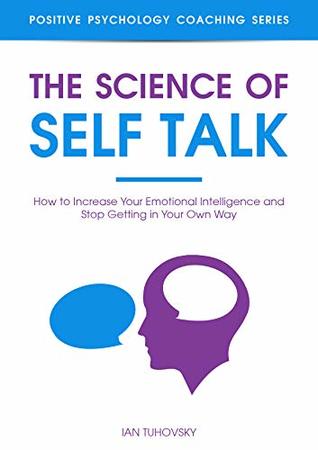More on this book
Community
Kindle Notes & Highlights
by
Ian Tuhovsky
Read between
January 3 - January 7, 2023
So a constructive kind of self-talk would be any kind of self-talk that leads you in the right direction, toward your goals and toward becoming a better you. Dysfunctional self-talk would be any self-talk that bogs you down in unproductive, stale, repetitive patterns, especially if those patterns make you feel miserable and helpless.
Researchers studying depression have figured out that people with clinical depression have a kind of compulsive destructive self-talk.[1] Psychologists call it rumination, and its characteristic is repetitively going over symptoms of distress, like a scab you keep obsessively picking at. Its other characteristic is passivity. You don’t focus on solutions but problems.
Negative self-talk increases that stress by distorting our perception of challenges and our ability to meet them. In other words, it makes routine difficulties look like threats. It makes things seem worse than they really are. Thus, it makes stress even more stressful. It does this in a few ways. We can break them down into a number of broad patterns or cognitive distortions. Catastrophizing – Also known as “making a mountain out of a molehill,” catastrophizing refers to making bad situations seem much worse than they are. You didn’t just make a mistake; you made an utter fool of
...more
This highlight has been truncated due to consecutive passage length restrictions.
Well, first of all, “loser” is a value judgment, not a fact. And, yes, value judgments are extremely useful—indeed indispensable—if you’re trying to decide whether or not to buy something, or whether or not you want to get to know someone, or whether that person you think of as your friend is really a friend who's there for you when you’re in need or is just a mooch who’s taking advantage of you. Value judgments are also useful for weighing your own habits, decisions, and actions and deciding whether or not they’re good for you and the people you care about, whether they’re ethical, and so
...more
This highlight has been truncated due to consecutive passage length restrictions.
Well, first of all, “loser” is a value judgment, not a fact. And, yes, value judgments are extremely useful—indeed indispensable—if you’re trying to decide whether or not to buy something, or whether or not you want to get to know someone, or whether that person you think of as your friend is really a friend who's there for you when you’re in need or is just a mooch who’s taking advantage of you. Value judgments are also useful for weighing your own habits, decisions, and actions and deciding whether or not they’re good for you and the people you care about, whether they’re ethical, and so
...more
This highlight has been truncated due to consecutive passage length restrictions.
Learned helplessness makes you neglect the things in your life that you need to change. That’s because you’re constantly telling yourself that you can’t change and you can’t improve things. Negative self-talk is a symptom of learned helplessness. It’s the voice in your head that says I can’t and It’s no use.
it’s good to experience stress sometimes because it improves your health and makes you live longer. In fact, if you never experienced any stress at all, it would mean you weren’t challenging yourself enough, that you weren't stepping outside of your comfort zone, that you weren’t giving your life any of the kind of friction it needed to generate heat, energy, and growth.
Self-leadership is pretty much the same as the self-agency we talked about earlier: taking authorship of yourself and your life. They defined positive or constructive self-talk as “characterized by accurate self-analysis, well-grounded beliefs, and an encouraging orientation” and negative self-talk as “a tendency to focus on and perseverate about the negative aspects of challenging situations.”
Positive self-talk is curious, action-oriented, and probing; it’s interested in feeling out the texture of life and learning how to work with it practically. It frames things, not in a naively optimistic way, but in a realistic cost-benefit analysis. By weighing the pros and cons practically, positive self-talk helps you make better decisions.
The thing that the Matthew effect or the Pareto distribution shows us is that things naturally take an unequal shape. They naturally tend to asymmetry. And that asymmetry appears because of momentum. So, as psychologist Jordan Peterson emphasizes in his talks, if you make an effort to improve yourself just a little bit every day, every improvement will build on the previous one. That will become the basis for the next improvement, until it becomes exponentially easier. It will have a runaway parabolic effect. “For to everyone who has, more shall be given.” This doesn’t happen by all at once.
...more


